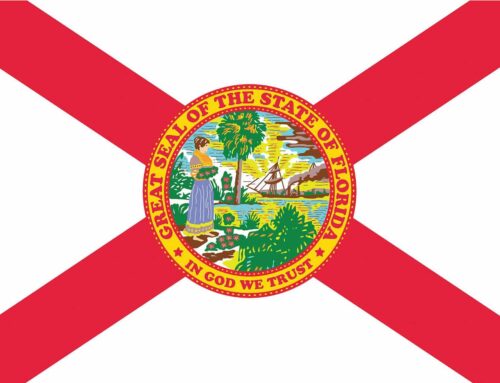Although a number of states have moved to decriminalize simple possession and use of small amounts of marijuana, driving laws in all states make it illegal to operate a motor vehicle while under the influence of drugs. That includes pot, hashish, and all derivatives of THC.
Marijuana is also still illegal at the federal level, too. So you don’t want to be crossing state lines with it or involving it in interstate commerce, which would potentially bring you under federal jurisdiction.
At the state level, different states have enacted different versions of marijuana driving laws.
Generally, they fall under DUI (driving under the influence), DWI (driving while intoxicated) or DUID (driving under the influence of drugs) headings. However, marijuana driving laws in all states impose steep fines, license suspension, mandatory counseling or drug awareness education, and/or jail sentences. Even for first-time offenders.
Here’s what you need to know about how Marijuana driving laws work, and how to find out what the laws are in your state.
Zero-Tolerance vs. Per Se Marijuana Driving Laws
Some state legislatures impose a “zero tolerance” policy on driving with marijuana, and/or other specific drugs. This is most frequently the case for states that have not decriminalized marijuana.
In zero-tolerance states, it’s a criminal offense to operate a motor vehicle with any detectable amount of marijuana in your system. Even if your doctor says your marijuana or THC is medically necessary.
This makes sense, because people get prescribed narcotic painkillers all the time, and it’s illegal to drive while under the influence of oxycodone and dilaudin, too.
Currently, about 16 states have a zero tolerance law in place for at least one drug, according to the Governors Highway Safety Association.
Other states have enacted per se laws. In these states, it is only illegal to drive if the amount of drugs in your system exceed certain limits. The prosecutor will have the burden of proving that your blood or urine samples were properly taken and processed, and that they show that the amount of THC or other drugs in your system exceeded the legal limit.
Currently, five states have enacted per se laws.
Marijuana Driving Laws
According to the Governor’s Highway Safety Association:
- 17 states have zero tolerance or non-zero per se laws for marijuana.
- 10 states have zero tolerance for THC or a metabolite.
- 3 states have zero tolerance for THC but no restriction on metabolites.
- 4 states have specific per se limits for THC
- 1 state (Colorado) has a permissible inference law for THC
Marijuana driving laws are distinct from possession laws. For example, your state may allow for possession of small amounts of medical marijuana, or a certain number of doses of medically-prescribed THC.
Most states that do this also have age provisions. For example, even Colorado, which has long since decriminalized the general recreational use of marijuana, does not allow use or possession for anyone under age 21.
Key Concept: Permissive Inference and Marijuana Driving Laws
In the context of impaired driving laws, the term permissive inference means that if a person tests with potential intoxicants above a certain level within a certain amount of time after driving (commonly 3 hours), that a law enforcement officer, judge, and/or jury MAY infer that the individual was intoxicated while operating the motor vehicle. But they are not required to.
If a state establishes a permissive influence standard with regard to marijuana or THC, that has important implications for the defense.
For example, suppose your state says that if a blood test shows more than five nanograms of THC in your system, the jury may but not must infer that you were intoxicated when you were driving less than three hours prior to the blood test.
In that case, even though you tested at higher than the limit, you can still beat the charge, if you convince prosecutors or a jury that you were not intoxicated or impaired. (And therefore not driving while intoxicated or impaired.)
Here’s how it might work:
You get arrested and charged with driving under the influence of mariuana. Your blood test shows a THC level of 0.6 nanograms, or just above your state’s legal threshold for inferring intoxication.
A sharp DUI attorney can go back to the prosecutors, and through the discovery process, demand blood sample that you can test at an independent laboratory. Not the one that the state picks.
Your independent test may show a lower overall THC level: private, independent labs are usually more accurate than the labs the police send your samples to. Private labs tend to be more accurate than the ones the state prosecutors’ offices pick. And the ones the state prosecutors pick will be the ones that help them achieve the highest conviction rates to make themselves and the politicians look good.
Key Concept: Active Vs. Inactive THC Levels and Marijuana Driving Laws
There are two kinds of THC: Active THC-9, which is what actually causes impairment but doesn’t stay in your system long, and inactive THC, which doesn’t cause impairment, but can stay in your system much longer.
Because of this, its’ quite possible – even common – for Regular marijuana/THC users to have significant levels of inactive THC in their system, but not actually be impaired at all, because they have little or no active THC-9 in their bloodstream.
But most of the time, the prosecutors’ labs don’t differentiate between the two types of THC. The government just wants to boost their conviction rates.
But in a permissive inference state, the judge and jury are legally obligated to allow you the opportunity to rebut the presumption that you’re impaired if you test over the legal limit.
Your attorney can demand a blood sample to be tested independently, in your own hand-picked lab. It’s common for defense attorneys to have an independent test done specifically for THC-9.
If inactive THC levels are high, but your THC-9 levels are low, you probably weren’t impaired much by THC. If there are no other aggravating or complicating issues involved in the case, you may have a good chance of beating the charge, if the case goes to trial.
Furthermore, some frequent THC or marijuana users build up a significant tolerance. So they don’t get significantly impaired, even with significant amounts of THC in their system.
Where a heavy user would have less opportunity for defense in a per se state, those in permissive inference states may have another opportunity to create reasonable doubt in the minds of the jury. It’s not enough to just show you tested over the limit for THC or any other substance. The state has to prove you were actually impaired. And in a permissive inference state, you get to show that maybe you weren’t!
Put those elements together, and you may be able to convince a jury.
Sometimes, a good, credible attorney may be able to convince prosecutors to drop the case altogether, before you get to trial.
Marijuana Medical Cards Don’t Make for Probable Cause
Generally, police cannot use the mere possession of a state medical marijuana card as probable cause. If you get pulled over for expired tags, and the police officer happens to spot your medical marijuana card, the officer cannot use fact alone as a justification to arrest you ore demand that you submit to a chemical test. Marijuana driving laws aren’t just a tool to allow police to target you. Marijuana driving laws also provide important safeguards for your civil liberties.
Get a Marijuana-Friendly Car Insurance Company.
If you’ve got a THC or marijuana-related traffic offense on your record, it can be difficult to get fairly-priced auto insurance. Some insurance companies will drop you altogether, or outright deny your application.
But not all of them, by any means. There are a few insurance companies who are much more understanding of THC users than others. While you can naturally <get ready for it> expect your rates <here it comes!> to be… <ahem> higher <HAR!> than standard, low-risk drivers who have clean driving records, some carriers definitely give drivers like you a much fairer shake.
But it’s tough to find them on your own.
That’s where we come in.
Select Insurance Group is an independent multi-state car insurance broker.
Unlike most other agencies, we specialize in non-standard and higher-risk profile drivers.
Also, unlike most other car insurance agencies, we aren’t captive to any one insurance carrier. Many big name insurance companies have ‘captive’ sales forces.’ Their agents can only show you policies from a single company.
But one size definitely does not fit all. Especially for high risk car insurance customers!
For high risk drivers… those with an accident or two on their records, or who have SR22 requirements, reckless driving, or driving while intoxicated convictions – choosing the wrong insurance company can cost thousands of dollars, even within a single year.
Don’t put up with being treated unfairly, or like a second class citizen by insurance carriers or agents that just don’t get it! If your current insurance company is jacking your premiums up higher than Snoop Dogg on a Friday night, there’s probably a better deal out there for you!
By going with an independent insurance agency that specializes in drivers who’ve made a mistake or two in their lives (who hasn’t?), you can get fast quotes not just from a single company, but from many different competing companies doing business in your state. All of whom want your business!
And you can do it all with a single call!
My team will then help you choose the carrier that provides the best overall value at a premium you can afford.
To get started, and to save the most money possible, click here, and fill out our brief quote form.
Or you can go right to the phone! Just call us now at (855) 438-7353 to speak to an agent!
Thanks for reading! Drive safe, and I’ll see you on the road!
Steve “Mr. Insurance” Ludwig






